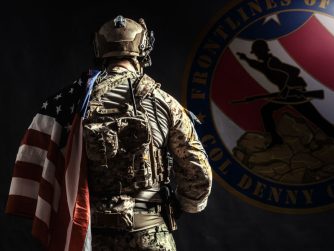On 17 Dec 1777, the French foreign minister, Charles Gravier, count of Vergennes, officially acknowledged the US as an independent nation. News of the Continental Army’s overwhelming victory against the British General John Burgoyne at Saratoga gave Benjamin Franklin new leverage in his efforts to rally French support for the American rebels. Although the victory occurred in October, news did not reach France until December 4th.
Franklin had quickly mustered French support upon his arrival in December 1776. France’s humiliating loss of North America to the British in the Seven Years’ War made the French eager to see an American victory. However, the French king was reluctant to back the rebels openly. Instead, in May 1776, Louis XVI sent unofficial aid to the Continental forces and the playwright Pierre-Augustin Caron de Beaumarchais helped Franklin organize private assistance for the American cause.
Franklin, who often wore a fur cap, captured the imagination of Parisians as an American man of nature and his well-known social charms stirred French passions for all things American. He was the toast of Parisian society, enchanting salons with his wide-ranging knowledge, social graces and witty repartee. Nevertheless, he was not allowed to appear at court.
It took the impressive and long-awaited victory at Saratoga to convince Louis that the American rebels had some hope of defeating the British empire. His enthusiasm for the victory paired with the foreign minister’s concern that the loss of Philadelphia to the British would lead Congress to surrender, gave Franklin two influential allies with two powerful–if opposing–reasons for officially backing the American cause. A formal treaty of alliance followed on February 6, 1778.
Without this French support, we would probably not have been able to beat the British. Yet it was our success that encouraged the French people to overthrow their monarchy just a few years later. Freedom is precious; it’s worth fighting for.



